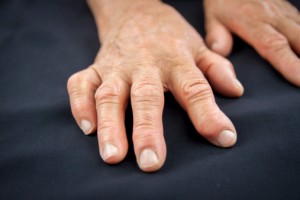

 Researchers from Penn State University have found a link between mood and pain experienced in rheumatoid arthritis patients.
Researchers from Penn State University have found a link between mood and pain experienced in rheumatoid arthritis patients.
“We found evidence consistent with a common, but largely untested, contention that mood in the moment is associated with fluctuation in pain and pain-related restrictions,” said Jennifer E. Graham-Engeland – associate professor of biobehavioral health.
Rheumatoid arthritis is a form of arthritis characterized by chronic inflammation in small joints, usually the hands and feet. It can cause swelling and redness and be a quite painful.
The study uncovered that positive mood was associated with less pain and fewer arthritis-related restrictions, and negative mood increased pain and arthritis-related restrictions.
For the research, participants were given mobile devices which prompted them to rate their mood and pain over the course of seven days, five times a day.
“Although it is relatively common to hear people in everyday life acknowledging that their mood can exacerbate their physical pain, most evidence for this view is derived from cross-sectional comparisons, longitudinal associations over fairly lengthy periods of time, such as months or years, or laboratory studies where mood and/or pain are manipulated, as opposed to naturally occurring in everyday life,” said Graham-Engeland.
Previous research on mood and pain only used ratings from the end of the day. This is the first study to examine the change of mood and pain throughout a person’s day.
Researchers propose that interventions to treat depression and target mood among those with rheumatoid arthritis can help them better manage the chronic pain associated with the condition.
The findings were published in Annals of Behavioral Medicine.
Copyright © www.orthopaedics.win Bone Health All Rights Reserved